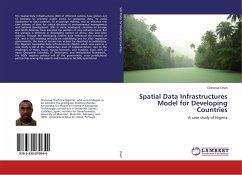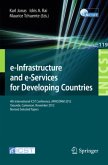The Spatial Data Infrastructures (SDI) of different nations have grown out of necessity to promote public access to geospatial data, to avoid duplication in data creation, to encourage sharing, and to enhance real time delivery of data for critical decisions in environmental management and national development. SDIs in more developed countries of Europe and North America, have assumed the position of core infrastructures. But the scenario is different in developing nations of Africa, Asia and Latin America. Though the developing nations have embraced the concept of SDI, and in fact working seriously on establishing one for their respective governments, the level of success can at best be described as satisfactory. The Nigerian Geospatial Data Infrastructures (NGDI) which was used as a case study is still at the rudimentary level of implementation, due to the challenges of Policy Issues, Access Network, and Funding. Even with so much Geospatial Scientists, IT Technicians, and Institutional Framework, the NGDI requires political will of the government, cross jurisdictional partnership among the experts and funding to be fully operational.
Bitte wählen Sie Ihr Anliegen aus.
Rechnungen
Retourenschein anfordern
Bestellstatus
Storno








